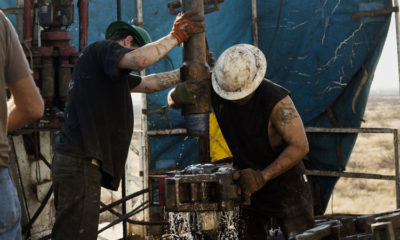European stock markets have been given an unexpected boost on Tuesday following reports that the bloc is close to an agreement on fresh joint bond sales to fund major projects.
It was reported that the joint bond sale will fund energy and defence spending across the EU following the Russian invasion of Ukraine. Europe has long been criticised for its over-reliance on Russian oil and gas, as well as its failure to hit its 2% NATO defence spending target, and the invasion has created the urgency to make the long-overdue changes.
While the short-term solutions will probably be focused on diversifying its supply, there will likely be a significant acceleration in its push towards green energy in the longer term. The size and make-up of the package could be announced in the coming days which will highlight just how seriously the EU is about transitioning away from Russia in light of recent events.
Unfortunately, these reports will only likely bring temporary reprieve in equity markets, a day after they were tipped into bear market territory. There still remains considerable uncertainty around the Russian invasion of Ukraine and commodity markets are continuing to see some extraordinary moves as a result.
The ripple effects from the invasion are severe and widespread and the worst may still be to come as traders desperately try to assess the fallout from potential supply disruptions of a wide range of commodities. The LME was forced to suspend nickel trading earlier after the price more than doubled to above $100,000 per metric ton in the mother of all short squeezes. Further market turbulence in the commodity space could easily follow.
Oil higher as the US prepares Russian import ban
There’s a lot going on in the oil market at the minute which is contributing to the huge amount of volatility and uncertainty we’re seeing. It’s such a headline-driven market at the moment and today is certainly no different. US President Joe Biden is reportedly preparing to announce a unilateral ban on imports of Russian oil, LNG, and coal as part of the latest actions to hold the country accountable for its invasion of Ukraine.
The “unilateral” aspect of that is the most important as far as markets are concerned which is why oil prices are only 5-6% higher today, rather than 15-20%. Still, it’s a bold move from the US, even if Russian imports make up a relatively small number. It’s another step towards the West turning its back on Russia and leaving it isolated in the world. Europe’s move will be slower but the debt raising is a big first step towards something similar.
At the same time, the IEA has warned the 60 million barrel coordinated reserve release last week was just an initial response and represented just 4% of IEA member stores. The group is expected to go further in order to bring down the price and we can only hope that future efforts will be more successful.
Of course, against the backdrop of war in Ukraine and severe sanctions against Russia, that’s easier said than done. There was a not-so-subtle dig at Saudi Arabia and UAE in there as well, both of whom have refused to use spare capacity to ease supply issues and instead stuck with their fellow OPEC+ partners.
Rarely been a stronger bull case for gold as it approaches all-time highs
We may be seeing a temporary rebound in risk appetite today but that’s not weighing on demand for gold, as commodity prices continue to spur fears of soaring inflation and recessions. The yellow metal has stormed above $2,000 to trade up around 2% on the day and it’s not looking like slowing down.
Record highs are not that far away and it’s hard to imagine a scenario in which demand doesn’t remain strong. We’re seeing such significant amounts of volatility and uncertainty at the moment that there’s rarely been a stronger bull case for a traditional safe haven like gold.
Bitcoin facing major risk headwinds again
Bitcoin is recovering alongside risk appetite, up around 3% on the day. The realignment with broader risk appetite has been an interesting development having gone through a period of gains on the back of increased adoption following the invasion and Russian sanctions.
There’s still scope for further support if we see more evidence of increased adoption but the realignment with risk could now be a headwind for the price. It’s hard to imagine a significant rebound against the backdrop of the terrible scenes in Ukraine and increasing sanctions.















